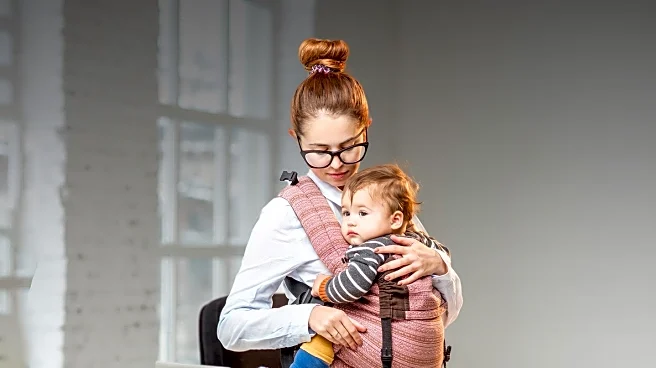What's Happening?
A survey conducted by Working Families reveals that nearly half of working fathers feel mothers receive more flexibility at work for childcare responsibilities. Despite a desire for equal parenting, many fathers face stigma when requesting time off for caregiving roles. The research highlights the need for cultural change and policy adjustments to support working dads, as employers are encouraged to offer enhanced paternity leave and flexible working arrangements.
Why It's Important?
The findings underscore the ongoing challenges of achieving gender equality in the workplace, particularly in terms of parental leave and flexibility. As societal norms evolve, companies must adapt their policies to support all parents, regardless of gender. This shift could lead to improved work-life balance and greater inclusivity, benefiting both employees and employers. The discussion also highlights the importance of addressing stigma and promoting cultural change to normalize equal parenting roles.
What's Next?
As awareness of these issues grows, companies may increasingly adopt policies that support working dads, such as extended paternity leave and flexible working options. This could lead to a broader cultural shift towards gender equality in the workplace, as organizations recognize the value of supporting all parents. The conversation may also influence public policy, as governments consider measures to promote equal parenting and work-life balance.
Beyond the Headlines
The focus on working dads and parental leave raises questions about the broader implications of gender roles and societal expectations. As companies and policymakers address these issues, they may challenge traditional norms and contribute to a more equitable society. This shift could have long-term implications for family dynamics and workplace culture, as communities prioritize inclusivity and support for all parents.









